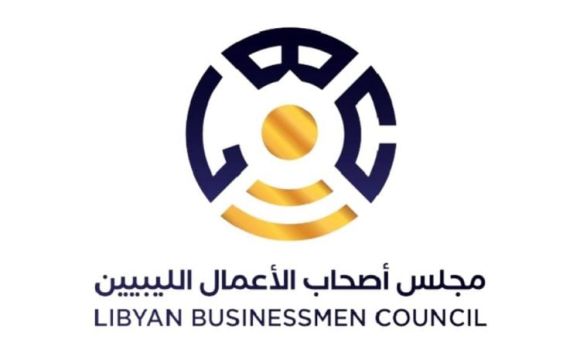Tax in Libya: A 2025 Guide to Current Regulations

Navigating the tax in Libya is essential for businesses and investors aiming to establish a foothold in the country’s dynamic economy. Qabas | Consulting and Training, a leading company in the sector, offers expert guidance on ongoing reforms and evolving fiscal policies, ensuring that clients understand the intricacies of Libyan taxation for compliance and strategic decision-making.
Addressing taxation matters in Libya not only optimises financial operations but also fosters a stable and predictable business environment. As the nation continues to advance economically, a comprehensive grasp of its tax system becomes pivotal for sustainable growth and attracting international investment.
By delving into Libya’s tax structures and regulations, stakeholders can better anticipate changes, mitigate risks, and leverage opportunities, positioning themselves advantageously within the region’s emerging markets.
Table of Contents
Overview Of Tax System In Libya
Libya’s tax system comprises various types of taxes regulated by national laws to ensure revenue generation and economic stability. The primary taxes include corporate income tax, personal income tax, and customs duties.
Corporate Income Tax
Corporate entities operating in Libya are subject to a flat corporate income tax rate. The legal framework governing corporate taxation is outlined in the Libyan Tax Law No. 11 of 2010, which establishes the guidelines for tax obligations, exemptions, and reporting requirements. Companies engaged in oil and gas sectors may encounter specific tax provisions due to the strategic importance of these industries.
Personal Income Tax
Individuals earning income in Libya are required to pay personal income tax based on progressive tax brackets. The Tax Law No. 11 also details the rates applicable to different income levels, ensuring a structured approach to personal taxation. Compliance with these regulations is essential for both residents and expatriates working in the country.
Customs Duties
Customs duties are levied on imported and exported goods, regulated under the Libyan Customs Law. These duties vary based on the type of goods and their classification, impacting international trade and business operations. Efficient management of customs processes is vital for businesses engaged in cross-border activities.
Legal Framework and Administration
The Libyan tax system operates under the authority of the Ministry of Finance, which oversees the implementation and enforcement of tax laws. The Tax Authority is responsible for tax collection, auditing, and compliance monitoring, ensuring adherence to established regulations. Recent reforms aim to enhance the efficiency and effectiveness of tax administration, fostering a conducive environment for economic growth.
Consulting and Support Services
Navigating Libya’s tax landscape requires specialised knowledge and expertise. Qabas Consulting & Training provides comprehensive services to assist businesses in understanding and complying with tax obligations. Their proficiency in operations, risk management, and strategic planning supports clients in optimizing their financial performance within the regulatory framework.
Historical Context
Libya’s tax system has evolved significantly over the decades, reflecting changes in economic policies and governance structures. The introduction of modern tax laws in the early 2000s marked a shift towards a more structured and transparent taxation regime. Ongoing developments focus on aligning Libya’s tax policies with international standards, enhancing its attractiveness to foreign investors.
Recent Developments
Recent amendments to the tax legislation aim to simplify tax procedures and broaden the tax base. These changes seek to improve compliance rates and reduce administrative burdens for businesses. Staying informed about these updates is essential for stakeholders to maintain regulatory adherence and leverage potential incentives.
Understanding the intricacies of Libya’s tax system is crucial for businesses and investors. With professional guidance from experts like Qabas Consulting & Training, navigating the tax landscape becomes more manageable, enabling informed decision-making and strategic growth.

Types Of Taxes
Libya’s taxation system encompasses several key tax types, each regulated by specific laws and frameworks to ensure compliance and revenue generation.
Income Tax
Personal income tax is imposed on individuals’ earnings, including salaries, wages, and other income sources. The tax structure follows a progressive rate system, with brackets increasing based on income levels as outlined in the Libyan Tax Code. Taxpayers must file annual returns to determine their liability, ensuring accurate reporting and payment.
Corporate Tax
Corporate tax applies to businesses operating within Libya, calculated on their net profits. The standard corporate tax rate is set at [X]%, as specified by the Corporate Tax Law. Companies are required to adhere to comprehensive reporting standards and timely tax payments. Qabas Consulting & Training offers specialized guidance to help corporations navigate these obligations efficiently.
Tax Compliance And Filing
Filing Requirements
Businesses operating in Libya must adhere to specific tax compliance obligations. Corporations must file annual tax returns detailing their net profits, while individuals subject to personal income tax must report their earnings through mandatory declarations. Compliance ensures alignment with the Corporate Tax Law and regulations established by the Ministry of Finance.
Deadlines
Timely filing is crucial to avoid penalties. Corporate tax returns must be submitted by the end of the fourth month following the fiscal year-end. Personal income tax declarations are due by April 30 each year. Adhering to these deadlines supports uninterrupted business operations and maintains legal standing.
Procedures
The filing process involves several steps. Corporations must maintain accurate financial records in accordance with Libyan accounting standards. Tax returns are submitted electronically via the Ministry of Finance’s online portal. Individuals can also use the portal for personal tax filings. Accurate documentation and adherence to procedural guidelines facilitate smooth compliance. Firms like Qabas Consulting & Training offer expertise in navigating these procedures efficiently.
Penalties for Non-Compliance
Failure to comply with tax filing requirements results in significant penalties. Late submissions incur fines based on the duration of the delay, while inaccuracies in tax returns may lead to additional charges or audits. Persistent non-compliance can result in more severe consequences, including legal action. Maintaining compliance mitigates these risks and sustains a company’s reputation.
Resources for Compliance
Access to reliable resources is essential for effective tax compliance. The Ministry of Finance provides comprehensive guidelines and updates on tax regulations. Additionally, consulting firms such as Qabas Consulting specialise in assisting businesses with their tax obligations, offering training and strategic support. Utilizing these resources ensures adherence to Libyan tax laws and optimises compliance efforts.
Supporting Documentation
Maintaining thorough documentation supports accurate tax filing. Businesses should retain financial statements, receipts, and relevant contracts to substantiate their tax returns. Proper record-keeping simplifies the audit process and verifies compliance with tax regulations. Qabas Consulting & Training can aid in establishing robust documentation practices tailored to Libyan requirements.
Electronic Filing Systems
Libya’s Ministry of Finance offers an electronic filing system to streamline the submission process. This platform enables businesses and individuals to file returns, make payments, and track their compliance status online. Embracing electronic systems enhances efficiency and reduces the likelihood of errors in tax filings. Consulting services are available to help users navigate the digital filing environment effectively.
Audit and Review Processes
The Tax Authority conducts regular audits to ensure compliance with tax laws. Businesses must be prepared for potential reviews by maintaining accurate records and transparent financial reporting. In the event of an audit, firms like Qabas Consulting & Training provide guidance and representation to address any inquiries or discrepancies, ensuring a fair assessment process.
Tax Incentives and Reliefs
Libyan tax law includes various incentives and reliefs aimed at fostering business growth and investment. Eligible businesses may benefit from exemptions or reduced tax rates under specific conditions, such as operating in designated economic zones or investing in certain industries. Understanding and utilising these incentives can enhance financial performance and compliance strategies.
Continuous Education and Training
Staying informed about tax laws and compliance requirements is vital for businesses. Continuous education and training programmes help organisations keep up with regulatory changes and best practices. Qabas Consulting & Training offers specialised training sessions to equip businesses with the knowledge needed to maintain compliance and optimize their tax strategies effectively.
Recent Tax Reforms
Libya has implemented several tax reforms aimed at enhancing fiscal stability and attracting foreign investment. These reforms focus on aligning the country’s tax policies with international standards, improving tax administration efficiency, and providing incentives for key economic sectors.
Corporate Tax Adjustments
The Corporate Tax Law underwent significant amendments in 2022, reducing the standard corporate tax rate from 25% to 20%. This adjustment aims to stimulate business growth and increase Libya’s competitiveness in the global market. Additionally, the threshold for taxable income was raised, exempting smaller enterprises from mandatory corporate tax filings.
Introduction of Transfer Pricing Regulations
To prevent profit shifting and ensure fair taxation of multinational corporations, Libya introduced transfer pricing regulations in late 2022. These regulations mandate that transactions between related parties adhere to the arm’s length principle, requiring detailed documentation and reporting to the Tax Authority.
Enhancement of Tax Administration
The Ministry of Finance launched an advanced electronic filing system in 2023, replacing the previous manual processes. This digital platform facilitates easier submission of tax returns, real-time tracking of filings, and efficient processing of refunds. The system also incorporates automated compliance checks to identify discrepancies and reduce errors.
Tax Incentives for Strategic Sectors
Recent reforms include targeted tax incentives for sectors such as renewable energy, technology, and manufacturing. Businesses operating in these areas benefit from tax holidays, reduced rates, and accelerated depreciation on capital investments. These incentives aim to foster innovation and diversify Libya’s economy.
| Reform Area | Key Changes | Effective Date |
|---|---|---|
| Corporate Tax | Rate reduced to 20%, higher income exemption | January 2022 |
| Transfer Pricing Regulations | Implementation of arm’s length principle | December 2022 |
| Electronic Filing System | Introduction of advanced digital platform | June 2023 |
| Tax Incentives | Tax holidays and reduced rates for strategic sectors | Ongoing since 2022 |
Qabas Consulting & Training has been instrumental in assisting businesses navigate these reforms. By providing specialised guidance on compliance and strategic tax planning, Qabas ensures that clients effectively leverage the new tax framework to their advantage.

Challenges And Opportunities
Libya’s tax system presents several challenges that businesses must navigate to ensure compliance and optimise operations. Complexity in tax regulations can lead to difficulties in understanding obligations, particularly for foreign investors unfamiliar with Libyan laws. Additionally, administrative inefficiencies within the tax authority may result in delays and increased compliance costs. Economic volatility, influenced by fluctuating oil prices and regional instability, further complicates tax planning and financial forecasting for businesses operating in the country.
However, significant opportunities exist within Libya’s tax landscape. Ongoing reforms aimed at enhancing tax administration efficiency are aligning Libyan policies with international standards, making the environment more conducive to foreign investment. Strategic sectors such as renewable energy, technology, and manufacturing benefit from tax incentives, including tax holidays and reduced rates, which encourage growth and innovation. These incentives not only attract investment but also support the diversification of Libya’s economy away from oil dependency.
Businesses can leverage these opportunities by staying informed about regulatory changes and effectively utilising available incentives. Consulting firms like Qabas Consulting & Training provide essential guidance, assisting companies in navigating the complexities of the tax system and optimising their tax strategies. By utilising expert advice, businesses can mitigate challenges and capitalise on the opportunities presented by Libya’s evolving tax framework.
Furthermore, advancements in the electronic filing system introduced in 2023 have streamlined the tax submission process, reducing the potential for errors and enhancing overall compliance. Companies that adopt these technological improvements can benefit from increased efficiency and lower administrative burdens. Embracing such innovations is crucial for maintaining competitiveness and ensuring sustainable growth in Libya’s dynamic economic landscape.
While Libya’s tax system poses certain challenges, the ongoing reforms and available incentives create a fertile ground for businesses to thrive. Strategic planning and expert guidance are essential for overcoming obstacles and harnessing the full potential of the opportunities within the Libyan market.
Conclusion
Libya’s tax environment offers a mix of challenges and opportunities for businesses and investors. Successfully navigating this landscape can lead to improved financial management and access to valuable incentives. Ongoing reforms are enhancing efficiency and aligning policies with global standards, making Libya increasingly attractive to foreign investment. Leveraging expert consulting services ensures compliance and strategic decision-making, fostering sustainable growth in the market. Embracing technological advancements and staying informed about regulatory changes are essential steps for those aiming to thrive in Libya’s dynamic economy. With the right approach, businesses can capitalize on the evolving tax framework and contribute to Libya’s economic development.
Frequently Asked Questions
What is the current corporate tax rate in Libya?
As of the latest reforms, Libya’s corporate tax rate has been reduced from 25% to 20%. This change aims to make the country more attractive to foreign investors by lowering the tax burden on businesses. Additionally, the threshold for taxable income has been raised, exempting smaller enterprises from mandatory filings. These adjustments are part of Libya’s efforts to enhance its economic environment and support sustainable business growth.
How does personal income tax work in Libya?
Libya imposes personal income tax on individuals’ earnings using a progressive rate system. This means that tax rates increase with higher income levels. The tax is levied on various sources of income, ensuring that individuals contribute to the national revenue based on their ability to pay. Understanding the specific rates and applicable deductions is essential for compliance and effective financial planning for residents and expatriates working in Libya.
What tax incentives are available for businesses in Libya?
Libyan tax law offers several incentives for businesses, especially in strategic sectors like renewable energy, technology, and manufacturing. These incentives include tax holidays, reduced tax rates, and exemptions for certain types of income. Such benefits are designed to encourage investment and stimulate growth in key industries, making Libya an attractive destination for businesses looking to expand or establish operations in the region.
What are the tax compliance requirements for businesses in Libya?
Businesses operating in Libya must adhere to several tax compliance requirements, including the timely filing of annual tax returns and mandatory declarations for individuals. The introduction of an advanced electronic filing system in 2023 has streamlined the submission process, incorporating automated compliance checks to enhance efficiency. Non-compliance can result in significant penalties, making thorough documentation and adherence to deadlines essential for businesses.
How can consulting services assist with Libyan tax obligations?
Consulting services, such as those offered by Qabas Consulting & Training, play a vital role in helping businesses navigate Libya’s complex tax landscape. These services provide guidance on corporate tax obligations, and strategic tax planning. By leveraging expert advice, businesses can ensure compliance, optimise their tax strategies, and make informed decisions that support sustainable growth in Libya’s evolving economy.
What challenges do businesses face within Libya’s tax system?
Businesses in Libya face several challenges within the tax system, including the complexity of regulations and administrative inefficiencies that can lead to increased compliance costs. Economic volatility, influenced by fluctuating oil prices and regional instability, further complicates tax planning. Despite these challenges, ongoing reforms and available tax incentives present significant opportunities for growth and innovation, particularly in strategic sectors.
How is the Libyan tax system regulated and enforced?
The Libyan tax system is regulated by national laws overseen by the Ministry of Finance. The Tax Authority is responsible for tax collection and ensuring compliance among businesses and individuals. Recent reforms have focused on enhancing tax administration efficiency and aligning policies with international standards. This regulatory framework aims to create a stable business environment, essential for attracting and retaining both local and international investments.
What sectors are eligible for tax incentives in Libya?
Tax incentives in Libya are primarily targeted at strategic sectors such as renewable energy, technology, and manufacturing. These incentives include tax holidays, reduced tax rates, and exemptions designed to encourage investment and drive growth in these key industries. By supporting these sectors, Libya aims to diversify its economy, promote innovation, and create a more robust and sustainable economic landscape.
Championing Synergistic Growth
The Euro-Libyan Trade Center (ELTC), is a non-partisan, non-profit trade promotion agency working in cooperation with the GUCC to strengthen economic relations between Europe and Libya.
ELTC strategically positions itself as an enabler of transcontinental economic activities, offering a structured platform for entities with vested regional commercial interests. We are dedicated to enhancing operational capacities, broadening market access, and heightening the competitive index of enterprises within the region.
For tailored organisational strategy consultation, kindly reach us at +44 207 193 5556 or submit an inquiry via the provided contact form.
Follow us on:
- Twitter: https://twitter.com/eurolibyan
- LinkedIn: https://www.linkedin.com/company/eurolibyan
Latest News & Publications
Ready to Elevate Your Business?
At the forefront of our mandate to drive economic development, we are dedicated to fostering meaningful partnerships with regional stakeholders, businesses, and professionals across diverse industries, charting a course towards a brighter, shared future.
For inquiries, please complete the form below or reach out to us at +44 207 193 5556



